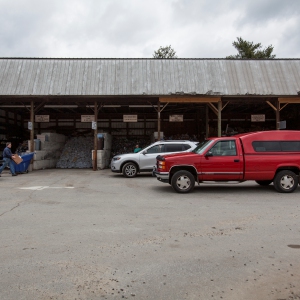Letter: Support for HB 326
| Published: 01-25-2023 7:00 AM |
When it comes to controlling wildlife, quite often we solve one problem only to create another. Such is the case with second-generation anticoagulant rodenticides (SGARs), poisons developed to kill rodents. These chemical poisons were created as a low-effort way to kill mice and rats on whatever scale applicable without having much, if any, direct contact with them.But it turns out these rodent poisons don’t just kill mice and rats; they also kill animals who eat mice and rats. Many different chemicals are used to kill rodents, but the type causing the most unforeseen harm to predatory and scavenging birds and mammals are SGARs.These poisons were developed in the 1970s when rodents became resistant to the older, “first-generation” poisons.
Second-generation poisons kill faster and remain in animal tissues longer, posing a greater risk to owls, bald eagles, foxes, and other non-target species who consume poisoned rodents. While SGARs aren’t legal for use by homeowners, they are still allowed for use by licensed pest control professionals. And pest control professionals deploy rodent poison everywhere, concealed in nondescript black boxes and fake rocks that are regularly re-filled to continue poisoning wildlife. It’s a profitable business, with the companies making the poisons also benefiting from never-ending demand. Promising alternatives for eliminating rodents, including electronic traps and birth control, are being used in other jurisdictions. Please support HB 326 to prohibit the use of second-generation anticoagulant rodenticides in NH.
Joan O’Brien
Amherst
]]>
Yesterday's Most Read Articles
 Neighboring landowner objection stalls Steeplegate redevelopment approval
Neighboring landowner objection stalls Steeplegate redevelopment approval
 Northeast Coffee Festival comes to Concord this weekend
Northeast Coffee Festival comes to Concord this weekend
 Hopkinton tries to nab out-of-town trash bandits
Hopkinton tries to nab out-of-town trash bandits
 On the Trail: Democrat Maggie Goodlander jumps into race to succeed Kuster
On the Trail: Democrat Maggie Goodlander jumps into race to succeed Kuster
 NH Senate panel frowns on bill to ease vehicle inspection requirements
NH Senate panel frowns on bill to ease vehicle inspection requirements
 Steeplegate project to reopen to public comment as developer seeks to reduce required parking
Steeplegate project to reopen to public comment as developer seeks to reduce required parking


 Opinion: Preserving our historic properties
Opinion: Preserving our historic properties Opinion: An opportunity to help law enforcement protect children
Opinion: An opportunity to help law enforcement protect children Opinion: Invest in child care for NH families
Opinion: Invest in child care for NH families Opinion: The slippery slope that should scare us? The trend of legislatures getting involved in personal medical decisions.
Opinion: The slippery slope that should scare us? The trend of legislatures getting involved in personal medical decisions.
